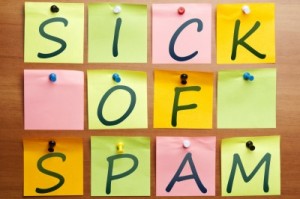Finding material to blog about
Some days, words will just flow onto your blog, but there are times when it is harder to know what to write about. It’s normal to have days where we’re less creative, or are tired, or overwhelmed or a multitude of other things that get in our way.
A week or so ago, I looked at a new blog – well, newish as it replaces a previous blog by the same person – and noticed a few spelling errors. Knowing the blogger, I let her know about them and thought nothing else of it. A few days later, I noticed that Melissa had added a new post in which she talked about fixing those errors I had pointed out and the importance of proof reading.
This reminded me of how we can find blogging (or article or newsletter, etc) topics from the simple events that happen in our business and personal lives. Small events can remind us of important things or create a useful learning tool. So here are some suggestions for next time you are stuck on what to write…
- questions clients have recently asked you – e.g. I recently explained bleeds to a couple of clients and I have been asked if I do editing of articles (which I do!), and both of those could become a blog post
- tips you come across from other business people – for example, I shared some decluttering tips I gained from a workshop I attended
- mistakes you see in others’ work – not as a means of criticising others, but as a means of learning from their mistakes
- turning points and changes in your business – either just to let people know of them, or as a means of teaching others alternatives
By including little things in your list of ideas is a good way to increase the amount of topics you have to write about.
Use your words wisely!



 By far the easiest way is to submit informative articles to various web sites and ezines. That doesn’t mean you submit an article about you or your business as that will bore and annoy your readers. What you have to give them is good information about something relevant to your business, something they can use and appreciate you for.
By far the easiest way is to submit informative articles to various web sites and ezines. That doesn’t mean you submit an article about you or your business as that will bore and annoy your readers. What you have to give them is good information about something relevant to your business, something they can use and appreciate you for.
Recent Comments